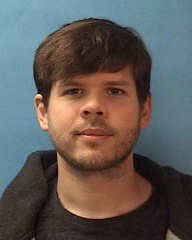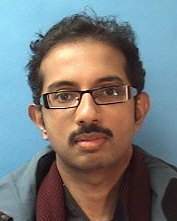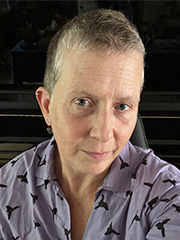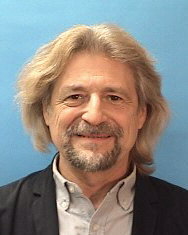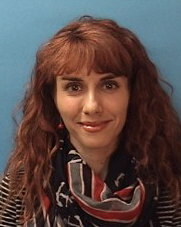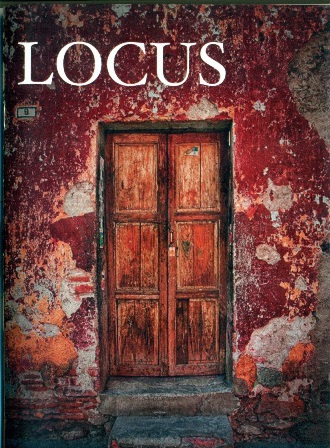Welcome
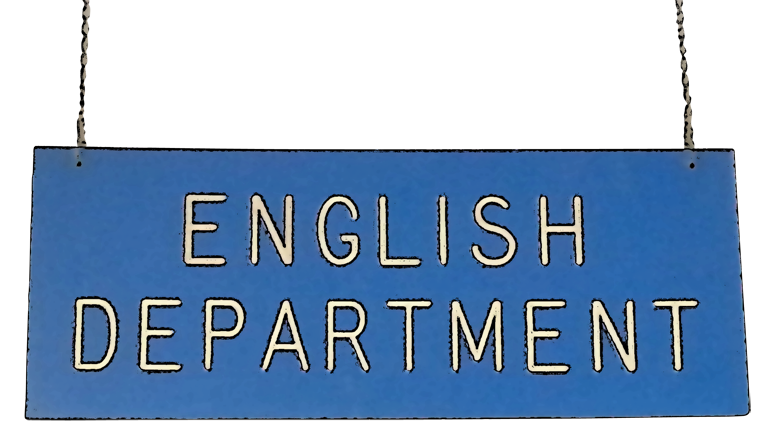
Why We Teach and Why Students Study English
Many of the students in our classrooms today will be doing jobs that don’t yet exist. But, whatever they end up doing, they will probably have to plan, to make decisions, to develop creative ideas and to convince others of the soundness of those plans and ideas. In order to be effective and successful, they will require judgement and the ability to express themselves coherently. And if they are to have a lasting and significant impact, they will require the confidence and the ability to question received wisdom and to look at the problems facing humanity from different perspectives.
We CEGEP English teachers help prepare them for all these challenges. In studying a literary text students approach it in the ambit of enquiry framed by the questions, “What meaning is being imparted?” and “How?” To the extent that they do this seriously, with our encouragement and guidance, they develop judgement, the ability to recognize, decode and evaluate ideas and opinions.
And because the body and soul of thought is its articulation, we help our students develop the skills to express their discoveries and ideas as coherently and convincingly as they possibly can. Along with judgement, the ability to express complex ideas coherently is another of the pillars of education and, indeed, of culture. Here again, the study of English is essential.
In addition, all literature worthy of the name addresses some aspect or aspects of the human condition, most often through situations in times, places and circumstances far beyond the immediate experience of our students. By being exposed to literature and challenged to discover what is to be found there, our students discover the broad tapestry of the human adventure, to much of which they might never otherwise have been exposed. Their realm of enquiry and discovery becomes as wide as the world and as profound as our shared humanity.
When the time does come to formulate plans and make decisions, our former students will be better able to place the questions being addressed into a broad context, a context that takes into account the scope of human history and the complexities of the human adventure.
Of equal importance is our introducing students to particular pleasures. Hopefully, along the way, our students will discover the pleasures of reading, the pleasure of completing the art and reveling in its beauties.
For these reasons and more, we do this job because we consider it completely worthwhile and absolutely fulfilling.
Members of the Department

Abray, Thomas
514-457-6610 ext. 5127
HO-342
thomas.abray@johnabbott.qc.ca
Education: BA (McGill, 1993), Dip. Ed. (McGill, 1995), MA (Concordia, 2000)
Selected publications: Pollen (DC Books, 2011) - short fiction
Current and recent courses: The Beach (101), Poem, Prose and Play (102), 18th & 19th Century Literature (103), Brave New World (102), Creative Writing A (cwa) , Creative Writing B (cwb), The Novel (NVL)

Arabaghian, Nazareth
514-457-6610 ext. 5260
P-140A
naz.arabaghian@johnabbott.qc.ca
A few things about me:
I am known to drop words like “ineffable” and “tatterdemalion” in conversations to determine if you are actually listening.
Some people enjoy stickhandling, rainbow kicks, and hooping three-pointers. I prefer the more congruent geometry of skateboarding, snowboarding, and surfing.
Badges Earned:
BA (Honors) in English and Liberal Arts (Concordia University, 1999)
Masters in English Literature (Queen’s University, 2000)
Masters in Education (University of Sherbrooke, 2015)

Beers, Mark
514-457-6610 ext. 5595
P-152
mark.beers@johnabbott.qc.ca
Mark Beers has been a member of John Abbott College¹s Department of English since 2006. He holds a Bachelor degree in Psychology from Colorado State University, as well as a Masters in English Literature from San Francisco State University. At JAC, he served as the English department¹s Writing Chair from 2010-17. He has also coordinated the Writing in the Disciplines project at the College.
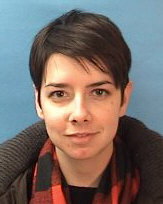
Bherer, Valerie
Curriculum Chair514-457-6610 ext. 5971
P-109
valerie.bherer@johnabbott.qc.ca
First, a funny quote: "I know writers who use subtext and they're all cowards" - Garth Marenghi
And the serious stuff (in the 3rd person please!): Valerie started at JAC in 2015. She has an M.A. from Carleton and 2/3 of a Ph.D. from the University of Minnesota. She enjoys teaching classes about women and young people. She also knows that the meta approach is a bit passé, but it's consistent with the late-90s references she tends to make in class.

Bouvier, Jesse
514-457-6610 ext. 5948
P-110
jesse.bouvier@johnabbott.qc.ca

Briffett, Neil
514-457-6610 ext. 5316
P-114
neil.briffett@johnabbott.qc.ca
A graduate of Abbott, I continued my studies at Concordia (B.A., M.A.). I then worked as a writing specialist at Dawson and Vanier before coming to do the same at JAC. I am a longtime marker of the English Exit Exam and have also taught at Dawson’s New School and the MacDonald Campus of McGill University. My courses run the gamut of subjects from love to war to drinking to song lyrics to The Twenties to something I haven’t thought of yet but most certainly will. I am also a singer/songwriter/guitarist whose bands have played in seemingly every lousy bar in North America – twice.

Brock, Andrew
514-457-6610 ext. 5905
P-166A
andrew.brock@johnabbott.qc.ca
Andrew Brock has been a member of John Abbott College's Department of English since 2001. He holds a BA in English Literature, a BFA in Art History, and an MA in English Literature, all from Concordia University.
He enjoys all things dark and scary, and likes to teach courses about them.
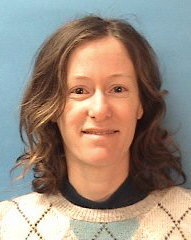
Campbell, Kirsty
514-457-6610 ext. 5959
P-150
kirsty.campbell@johnabbott.qc.ca
Kirsty Campbell earned her BA in English Literature from McGill University, and her MA and PhD from University of Toronto's Centre for Medieval Studies. She has taught at a number of universities in Canada and the US, and she now teaches courses at John Abbott that feature contemporary poetry, British novels, current and seminal works of science fiction, medieval stories of knights, and Shakespearean tragedy.
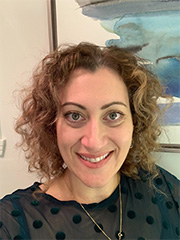
Fabrizi, Nadia
514-457-6610 ext. 5853
P-152
nadia.fabrizi@johnabbott.qc.ca
Nadia Fabrizi has been a member of John Abbott College's Department of English since 2021. She holds a B.Ed from McGill University, a B.A. English Literature (Honours) from Concordia University, and an M.A. English Literature from Concordia University. Her favourite things include her children, her tattered copy of Frankenstein, and a steaming cup of earl grey. She fervently believes in the future of blockchain technology and cryptocurrency and has plans to someday teach a course on the changing representation of money in literature.

Filip, Raymond
514-457-6610 ext. 5960
P-116
ray.filip@johnabbott.qc.ca
NAME: Raymond Filipavicius
DEPARTMENT: English
BACKGROUND: Writer, Musician, Teacher, Translator, Activist, Athlete, Family Man.
EXPERTISE: The English language.
COURSES TAUGHT: English in Many Tongues, Music and Literature, Journalism: The News as Muse, The Literature of Pacifism, Golf Literature.
PROFESSIONAL EXPERIENCE: Since the age of 18, I have made my living as a writer, teacher, and musician under the pen name of Raymond Filip.

Geoffroy, Yann
P-109
yann.geoffroy@johnabbott.qc.ca
Yann Geoffroy holds a Bachelor of Arts (Honours), and a Master's degree in Creative Writing and English Literature from Concordia University, as well as a Bachelor of Science degree in Environmental Science with a minor in Biology. He is also a songwriter and musician, performing under the moniker Second Body.

Gilchrist, Bruce
514-457-6610 ext. 5161
P-315
bruce.gilchrist@johnabbott.qc.ca
Bruce joined the English department in Fall 2015. He is an alumnus of Dalhousie University, where he took his BSc. Honours in Neuroscience, and McGill University, where he took his PhD in English. He is a specialist in medieval literature, particularly in first millennium manuscripts in Anglo-Saxon England. He is co-author of the grammar text, Drout's Quick and Easy Old English (2012), and assisted editing The Postmodern Beowulf: A Critical Casebook (2006). He is currently working as co-editor on Beowulf as Children's Literature: Studies in Adaptation; in this forthcoming anthology, he traces the illustrations in these works as they reflect the gendered historical reception of the poem. He also figures he has the world's largest collection of versions of Beowulf adapted for children (80 and counting). Bruce has taught previously at Université Laval, Concordia, McGill, Carleton, Bishop's, and Saint Lawrence College in Quebec City. His teaching interests include medieval literature, history of the book, poetry, science and literature, children's literature, and cinéma.
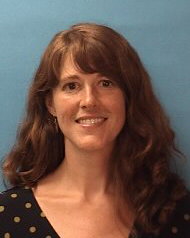
Lepine, Anna
514-457-6610 ext. 5957
P-142
anna.lepine@johnabbott.qc.ca
Anna Lepine has been a member of John Abbott College’s Department of English since 2007. She holds a Bachelor’s degree from McGill University (Drama and Theatre), a Master’s from Concordia University (English literature), and a PhD from the University of Ottawa (Victorian literature). Her doctoral dissertation, “The Old Maid in the Garret: Representations of the Spinster in Victorian Culture,” was awarded the Pierre Laberge Thesis Prize. She has published several articles on the portrayal of the spinster in Victorian culture and has presented papers at a variety of academic conferences. Current teaching interests include nineteenth-century British literature; the portrayal of women in literature; literature and science; and drama and theatre.

McClelland, Will
514-457-6610 ext. 5093
P-112
will.mcclelland@johnabbott.qc.ca
Will McClelland holds a B.A. (McGill) in Cultural Studies, an M.A. (Concordia) in Canadian Literature and has been teaching at John Abbott since 2013. Before that he was a lay church minister, a rock n' roll tour manager and a speculator in antique ornamental jade. His first novel, The Minted, was published by Blue Leaf Press in 2016.
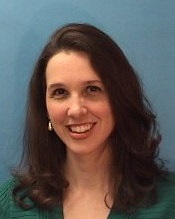
McDermott, Jennifer
514-457-6610 ext. 5153
P-166A
jennifer.mcdermott@johnabbott.qc.ca
Professor McDermott has been a member of John Abbott College’s English department since 2011. After earning her B.A. and M.A. at McGill University, and then Ph.D. at the University of Toronto, she has worked to incorporate her sensory research into the teaching of literature. Her expertise is Shakespeare; however, she teaches a range of courses including: “Shakespearean Bodies,” “Witches and Wizards,” “Sci-Fi Shakespeare,” “Mad Science,” and “Renaissance Greatest Hits.” Her courses invite students to bring centuries-old texts to life by using theatre rehearsal techniques, performance games, and close-reading. An invited speaker for the McGill Dean of Arts lectures on “Teaching Excellence,” she is a contributor to scholarly communities such as the Shakespeare Society of America (SSA) and the International Shakespeare Association (ISA). She is also a CANFIT Pro certified Fitness Specialist and Zumba instructor. What Jennifer enjoys most about teaching at Abbott is sharing her passion for literature with a diverse population of students.
SELECT PUBLICATIONS:
- “‘There’s Magic in the Web of It’: Skin, Mind, and Webs of Touch in Othello.” Embodied Cognition and Shakespeare’s Theatre. Eds. Laurie Johnson, John Sutton, and Evelyn Tribble. New York: Routledge P, 2014. Pages 154-172.
- “The Melodie of Heaven: Sermonizing the Open Ear in Early Modern England.” Religion and the Senses in Early Modern Europe. Eds. Wietse de Boer and Christine Goettler. Leiden: Brill, 2013. Pages 177-197.
- “Review of Holly Dugan’s The Ephemeral History of Perfume: Scent and Sense in Early Modern England.” Journal of British Studies (Apr 2013): 52.2 502-503.
- “Perceiving Shakespeare: A Study of Sight, Sound, and Stage.” Early Modern Literary Studies. Special Issue 19 (Dec 2009): 5.1-38.
- “Transgendering Clytemnestra.”Hirundo: The McGill Journal of Classical Studies1 (2002): 1-9.
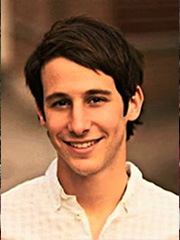
Peters, Brian
P-109
brian.peters@johnabbott.qc.ca
PhD (Université de Montréal), The School of Criticism and Theory (Cornell University).
I hold fond memories of my time at John Abbott and my teaching feels like a home-coming of sorts. My favorite courses to teach include Victorian literature, the fin-de-siècle, and the Edwardians (the latter area is my absolute favorite period in history and literature). I also teach courses in comparative literature and cinema, and a survey of famous authors for first year students, a course that looks at many different writers from various historical periods, countries and backgrounds.
My specialty as per my graduate school training is in queer theory and sexuality studies, with an emphasis on psychoanalysis and the French school of philosophy and criticism. I write, research, and publish on many topics from comparative literature to popular culture. I have been active in scholarly research and publishing since graduate school, and along with my own publications I sit on various editorial boards for peer-review academic journals, both on a rotating and permanent basis.
To compliment my past research on queer youth and subculture, I worked extensively with GLQ youth. I have just completed my first novel project, and I have started to do some stand-up comedy. I am a non-competitive runner, having retired from racing, and an avid yogi/yoga teacher. The bulk of my leisure time is spent with my horse. I have returned to equestrian competitions, and I have competed at regional, provincial, and nation levels. I am an ex-actor and hack-musician.
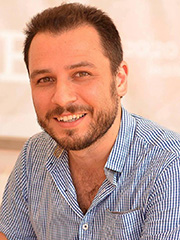
Pittella, Carlos
carlos.pittella@johnabbott.qc.ca

Purcell, Finn
P-126
finn.purcell@johnabott.qc.ca

Russell, Claire
514-457-6610 ext. 5969
P-109
claire.russell@johnabbott.qc.ca
Originally from Vancouver, Claire received a Bachelor of Arts at the University of Victoria (2003), completed her Masters of Arts in English Literature and Language at Queen’s University (2005) where she also was accepted into their doctoral program. In 2008, while working on her dissertation, Claire joined the English Department at John Abbott. The experience was transformative, making her realize that teaching, not academic research, is where she could contribute most effectively to the struggle for a free and just world. Her course content addresses the real problems of our times, empowering students to confront destructive environmental practices and state-sanctioned violence with the courage, compassion and analytical rigour that this requires. By embracing a holistic model of education, one that incorporates movement, cultural and outdoor activities, and creative writing into more traditional practices, Claire is committed to fostering her students' intellectual development, creativity and sense of agency. She hopes that in discovering more about each other and themselves, students will also rediscover their innate capacity for joy.
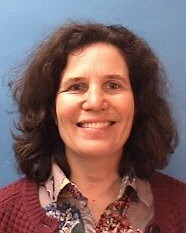
Stewart, Fiona
514-457-6610 ext. 5428
P-110
fiona.stewart@johnabbott.qc.ca
Fiona Stewart has been a member of John Abbott College’s English Department since 2006. A graduate of John Abbott College (Health Sciences 1988) she holds a Bachelor degree in English Literature from the McGill University, an M.Phil in Modern English Literature from Oxford University as well as a Diploma from Cambridge University. Her main areas of interest focus on contemporary British, Canadian and American literature, memoirs and autobiographies and utopias/dystopias. She is married to a documentary film-maker and together with their three children love to travel – recent trips include a year in Chamonix, France and a month-long trip to India. Her family is currently fostering a Mira dog – a guide dog in training. Outside interests include cooking, reading, running, triathlons & x-country skiing.

Sultana, Rebecca
514-457-6610 ext. 5935
P-136
rebecca.sultana@johnabbott.qc.ca
Having lived in three different continents and six different countries, it was inevitable that I would be drawn to ideas of migration, exile and fragmented identities. My PhD dissertation (1999: Texas Christian University with the Ida Green Doctoral Fellowship) was on Diaspora literature, specifically on first generation American immigrant writers. In conjunction, my interest also delves into post-colonial theory and literature as well as in cultural studies.
My Masters was on American literature (1995: University of Texas at Dallas on a Fulbright Fellowship).
Before finally settling down at John Abbott, I have taught at Concordia University and at Champlain College.
When I have time left over, I sew and embroider. I garden too.
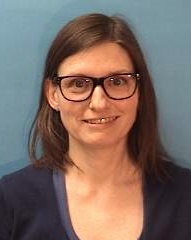
Venart, Sarah
514-457-6610 ext. 5967
P-301
sarah.venart@johnabbott.qc.ca
Sarah Venart has been a member of John Abbott College’s Department of English since 2001. She holds a Bachelor degree in Canadian Studies from Mount Allison University, a Bachelor degree in English Literature (Honours) from York University as well as a Masters in English Literature from Concordia University. Sarah writes poetry and fiction and has published a chapbook (Neither Apple Nor Pear) and a collection of poems (Woodshedding). At John Abbott, Sarah serves as a member of the Awards and November Prize committees.
Courses
Students are required to successfully complete four (4) English courses to obtain their DEC. Courses 603-102, 603-103 and 603-200 may be taken in either order only after successfully completing 603-101.
For a complete listing of English courses offered, please visit the General Education section of the Program Structure
Writing Centre
The Writing Centre
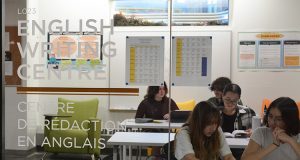
The Writing Centre provides free, high-quality peer tutoring to all John Abbott students who require assistance with their reading or writing assignments. Coordinated through the English Department, the Writing Tutors program trains over sixty students as peer tutors each term. Ultimately, our tutors aim to equip students with new strategies for each stage of the writing process, making them empowered readers and better writers on their own terms. With its focus on “students helping students” and its friendly and welcoming space in the basement of the library (L-023), The Writing Centre helps develop reading and writing skills in English across the programs and disciplines at John Abbott College.
Our location
We are located in the basement of the library, L-023.
Who we support
Students from any program at the College.
Services provided
- Brainstorming techniques and tools
- Methods to strengthen thesis statements
- Essay global revisions
- Reading comprehension advice
- Proofreading assistance
- MLA and APA format guidance
- Grammar worksheets
- Study skills and outline tips
- Time management strategies
- Specialized posters on idioms, literary terms, and essay forms
Contact
Contact the coordinators at writing.centre@johnabbott.qc.ca
The Writing Centre L-023 (drop-ins welcome)
English Honours Portfolio
English Honours Portfolio
Student Information and Procedures
What is it?
The English department at John Abbott College offers our very best students the opportunity to assemble an English Honours Portfolio. If the portfolio is approved, you will receive a certificate and letter of attestation upon graduation. The advantage of participating in the Honours Portfolio is that you can refer to the certificate on your curriculum vitae and even include the letter in your university application. They can also serve as tools when you are applying for jobs where a strong command of written English is essential.
Who is eligible?
If you are a motivated student who has an accumulated average of 85% in three of your English courses at John Abbott College, you can participate.
How does it work?
- Early in your graduating semester (by week three), you must approach an English teacher to be your Portfolio Supervisor. Then, you must assemble a portfolio which highlights your best written work at JAC. These three pieces should include the following:
- At least two works from English courses at JAC. One must be a literary analysis. The other can also be a literary analysis, or it can be an assignment written in a ALC English course, such as Journalism or Creative Writing.
- A third written work can be drawn from a course in any other department at JAC. It can also come from the College Creative Writing Competition (where students were either winner or finalist), or from a campus publication, such as Bandersnatch or Locus.You must also write a 500-word covering letter wherein you reflect upon the texts you have chosen. How are they representative of your best work? What did you learn through the experience of writing them? How is strong writing important to you?
You are responsible for initiating and participating in the Portfolio. The Portfolio Supervisor is there to assess your work and suggest any revisions or substitutions he or she feels necessary. The Supervisor is the one who will recommend you for the certificate and letter. You must respect the time frame set out for you by the Supervisor.
Any questions?
Ask your English teacher. He or she will be able to help you or direct you to the person in the Department who can.
Locus
Locus Literary Magazine, published each semester, is a collection of works by John Abbott students varying from short stories to poetry to art to photography to any medium in between. We endeavor to bring you the very best that John Abbott offers in terms of creative expression.
Nous acceptons des soumissions en français aussi.
Locus Winter 2021
English Exit Exam
The Ministerial Examination of College English (the English Exit Exam) is a four-hour examination that can be taken in either May, August, or December. All students in English CEGEPs must take the examination before graduating and must pass it in order to obtain a diploma. The examination is designed to determine whether students have achieved a satisfactory level of competence in English. It is based on the Ministerial Objectives and Standards for all English courses given in the province.
For more information, contact your English teachers or visit Abbott’s Academic Success Centre
Emeritus
Emeritus
The following former teachers contributed greatly to creating the department we work in today so we honor them and their many years of service here:
Sharon Asher, Stan Asher, Ann Beer, Helen Binik, Patrick Burger, Deborah Campbell, Lesley Checkland, Geoffrey Cook, Cindy Edwards, Helen Ellis, Adrienne Elliott, Shan Evans, Susan Gillis, Peter Henbury, Harold Hoefle, Lora Hutchison, Deirdre King, Renee Lallier, Steve Lehman, Steve Luxton, Maureen MacCuish, Hal Napier, Murray Napier, Ed Palumbo, Beryl Parker, Ken Radu, Barry Reynolds, Penny Ross, Ron Rower, Yves Saint-Pierre, Linda Sheshko, Rod Smith, Abe Sosnowicz, Patrick Tee, Bill Tierney, Lori Weber, Larry Weller
Prospective Teachers
About the JAC English Department
English is one of four disciplines comprising General Education, the core part of every student’s education at CEGEP. Our Department is a community of teachers of language and literature committed to diversity in representation and content that develops critical thinking and social conscience. We teach students to appreciate literary texts and to recognize diverse individual, social, and cultural realities.
The department is committed to recruiting a diverse faculty with expertise in literature from a range of cultural traditions and historical periods. We encourage applications from Indigenous peoples, members of groups that experience discrimination due to race/ethnicity, class, colour, place of origin, ancestry, and/or religion, persons who identify as women and/or 2SLGBTQ+, and persons with disabilities. Applicants are invited to self-identify confidentially in their cover letter.
Required Qualifications
The minimum requirements for the position are stated on the job posting. For teaching positions in English, the minimum educational requirements include a Master’s or equivalent degree in English, though a Master’s degree in related fields may be considered as well.
Desired Assets
Faculty’s core responsibility is classroom teaching, and the English Department values innovative teachers who are flexible, adaptable, and responsive to the varied levels and changing needs of CEGEP students. We also appreciate applicants with the ability to complement and expand the diversity of our faculty’s research interests and backgrounds. In addition to experience in teaching, experience and expertise in the following areas will be considered an asset:
- Professional or non-academic creative writing, journalism, oratures
- Anti-oppression/anti-racist pedagogies
- Indigenous literatures and pedagogy
- Ecocriticism and literary engagements with nature, including the climate crisis
- Global or comparative literatures
- Technology and culture
The Application Process
Prospective candidates for teaching positions in the English Department must apply to a posting on the Career page of the John Abbott College website. Follow the steps outlined to view the current postings and apply. Please note that only candidates who have applied through this process can be considered for an interview.
Postings for English teaching positions appear for only a short period of time (usually no more than 10 days), so it is important to consult the site regularly. Once you have set up a Monster account you can ask to be notified about new postings. Most postings for positions in Day Division and Continuing Education are posted near the start of the semester (January or August), though you may see postings at other times of the year as well. Applications are not kept in a bank, so you will have to apply again each time a new posting appears to be considered for a job.
Some postings will appear that have already been filled by internal candidates, so if you apply and don’t hear back, don’t be discouraged. Please apply again to the next posting.


